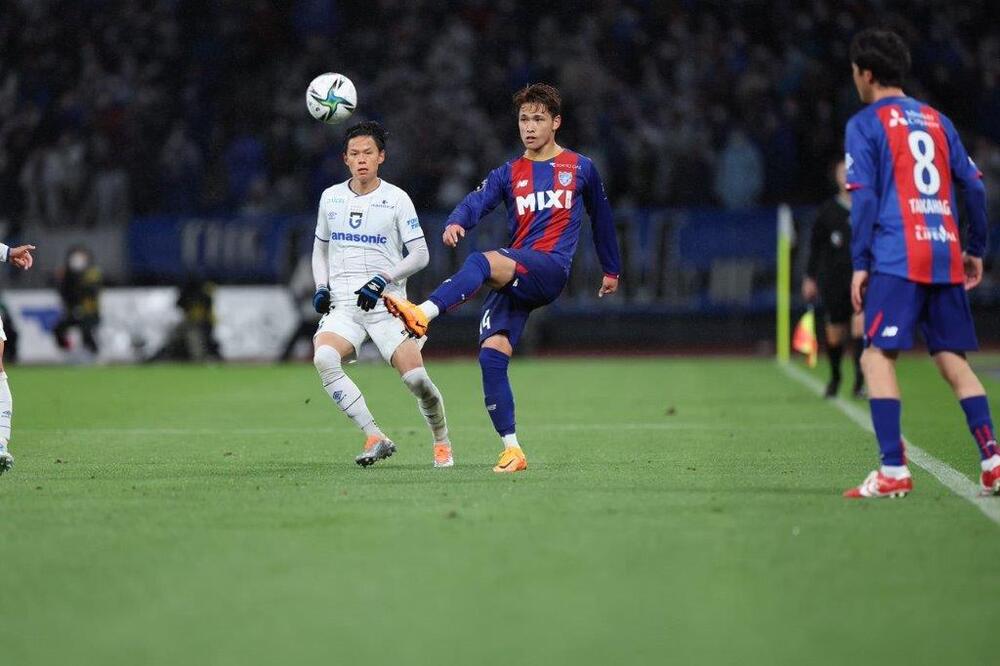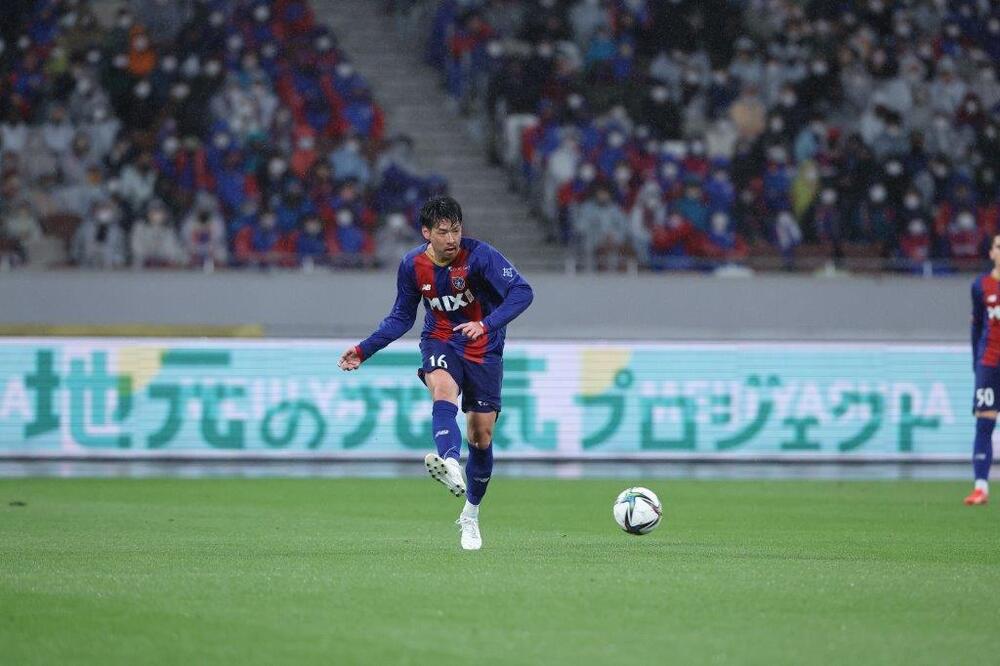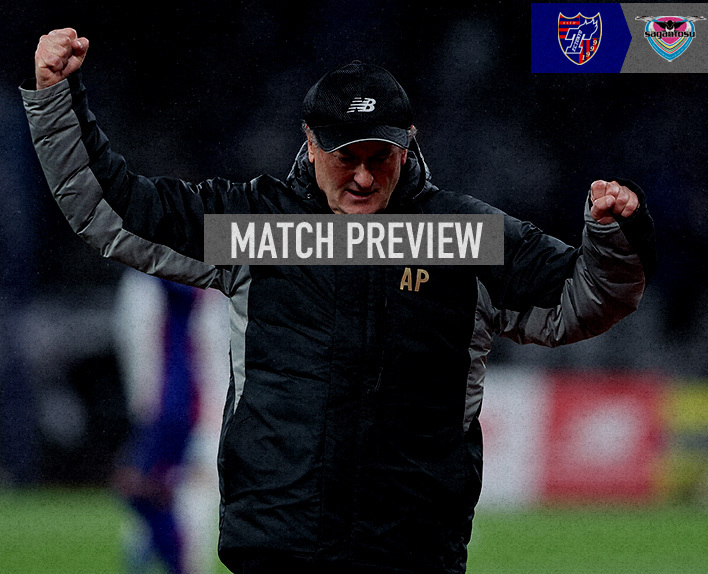"Tactics are born from excellent positioning."
From now on, positional play
Have you read Satoshi Hojo's preview column that was published before my clumsy column? I think he is one of the best writers when it comes to verbalizing soccer, and I always learn a lot from his columns. He has been one of my idols even before I started this job, and I read his columns with great respect.
Now, let's continue from Part 1. The followers of positional play all speak in unison, spitting out the same words. Coach Albert Puig Ortoneda is no exception, repeatedly using the phrase "It takes time to complete the team. We will grow as we play more games."
In order to acquire positional play, practical experience and successful experiences are essential. This also applies to chess, which was mentioned in the previous section. The game of chess can be divided into three main stages: the opening, the middle game, and the endgame.
In the opening, we will develop pieces according to various opening moves (this is what was mentioned in the first part, so to speak, Albert Tokyo's opening moves). And the middle game is a situation where tactics similar to "tsumeshogi" (checkmate chess) are used. By solving many tactics, you will come up with good moves in actual games and become more careful about your opponent's invitations and next moves. Analyzing game records is also essential for being able to handle complex board situations. This accumulation of tactics and game record analysis is the shortcut to improvement. In short, repetition and experience are key. Tactics can be replaced with daily practice, and game record analysis can be replaced with game analysis.
Takuya AOKI says this.
"We change our position based on the opponent's position. When we change, there are times when it goes well and times when it doesn't. Ideally, the fluctuations should be minimal. While playing, I sometimes feel that something is off, but when I review the footage, I realize that it was surprisingly good. There is still a discrepancy in that feeling, and I wasn't able to view myself from a broader perspective. I believe the anchor position allows for playing soccer without touching the ball, as I experienced at Urawa. When I can touch the ball, I want to create the game. However, when the opponent comes at me man-to-man and I can't touch the ball, the coach says not to focus too much on that. If I can play soccer without touching the ball, that would be the best scenario. It's important to observe the opponent's movements from my position, and if no one is marking me, I can receive the ball freely. When that is not the case, it would be great to be able to play soccer without touching the ball."
Shuto ABE follows this.
"After the game, we also talk about the position of the inside half in the video meeting. I've been told to take a position where I can move around between the opponent's midfield and center back, as I've been sitting too much in a position where the opponent's center back can see me. I'm conscious of that. We've also stopped and corrected our positions in practice while watching the video, but sometimes it doesn't work out in the game. Players talk to each other on the pitch and come up with different ways and ideas. We're becoming more flexible like that. We won't see areas for improvement until we play more games. On the other hand, we won't understand what we can do until we trust the coach and keep doing it."
Players secure an advantage by taking the correct position on the pitch, regardless of offense or defense, based on where the ball is. Until they reach that point, there will still be trial and error. It's not unreasonable to start working on this style only a few months ago. However, by solving the problems that arise, they can gain more freedom and experience. Time and effort must be spent here. Building up repetition and experience. From the impression I got when covering the camp, it should be going smoothly once they enter this cycle.

At the moment, we are playing the league matches with a somewhat fixed lineup, but it is also possible to establish a different opening by changing the players. As shown in the away game of the J.League YBC Levain Cup group stage, such as the match against Júbilo Iwata.
As we break through the middle game, the ending comes into view. How to pull the king down from the throne. In soccer, of course, that is the goal. It was Abe and Matsuki who expressed their strong feelings there.
"An inside half who can score points is ideal for me. But it's difficult. I also want results and want to help the team there."
When I told Matsuki that Abe, who had already scored one goal, said so, he reacted like this.
"I also have not been able to score as a current challenge. It would be great if I could take more aggressive shots. As it is now, my first priority is not the goal, but the side. My seniors have told me that they will cover for me if I go where I need to go. I believe I can do it with confidence."
However, the scent of a goal is also wafting from that Matsuki. In the away match against Hokkaido Consadole Sapporo, they continued to play with high intensity for over 90 minutes and even created a scene where they jumped into the goal area in the final moments of the game, just one step away... "Why was that possible?" There was a surprising answer to that.
"I want to score, that's why. It's my strength, so it's normal for me to go there. I think it's my job to go there and score."
Abe also responds.
"Kuse is amazing. He's only 18 years old and in his first year after graduating high school, but he's playing with so much energy and expressing himself for the full 90 minutes. He also wants to score goals, but I think he's close to getting them. If Kuse and I can compete for goals, it will also help the team. I think it will also bring out a competitive spirit in myself and increase my desire to score goals."
Coach Albert Puig Ortoneda is saying "There are few things a coach can do" in this ending. Indeed, the goal area is also a place to show the quality advantage. As mentioned in Mr. Hojo's preview column, there is a current situation where the finishing touch of the front line, which other clubs envy, is not being utilized. There are only a handful of players and coaches in the world who have this answer.
5/8 Tosu Match Preview by Satoshi Hojo (Football Writer)
"Seize control of the midfield battle and break free from the duck"
They are each voicing their ideas for this difficult question in their own words.
"It depends on the person, but if it's (Kensuke) Nagai on the right wing, he can break through vertically, so I don't have to come close. If it's Kon-chan (Kazuya Konno), he has a cut-in, so I can become a dummy and break through, which will also lure the opponent. Depending on the partner, I want various options. Otherwise, we can't score and we can't take shots." (Abe)

"If we can create time by moving the goalkeeper through the build-up from the back, it will be beneficial. There are also parts where individuals are isolated in a slightly stretched state. If we compact the team and create opportunities in the pockets while shaking the sides, and if we create a pause with our inside halves, it will become even more interesting." (Matsuki)

Any difficult problem should be solved by the fact that "tactics are born from excellent positioning". The solution is nothing but repetition and accumulation of experience. Fischer, who elevated chess to an art form, has proven this.
And now, let's return to the movie "Searching for Bobby Fischer." The main character, Josh, was afraid and scared of losing to a strong opponent the day before the final match. Then, a strict coach played by the famous actor, Jean Kingsley, appears and gives Josh something to encourage him. The next day, Josh confidently enters the venue. From there, everything leads to the best outcome. There are three phrases that overlap with this scene.
Matsuki says, "It's not about the team's performance, but if everyone has a strong desire to win, I believe we can definitely win. Since all the members are together, it would be great if we could show our emotions more prominently."
Abe can move his mouth as a key player. "I guess it's because of my feelings, I always have the desire to not lose and continue playing in the game."
Takashi AOKI's words reflect the path he has walked. "During the camp, I watched some videos, but I still can't catch up. When will I fit in perfectly? However, I want to win the game. There is also a balance between ideal and reality. But personally, there is no time, as a player. I want to pursue the balance between ideal and reality firmly."

"A battle of positional against positional. Even if it is Sagan Tosu, who is currently on a 5-game losing streak in the league, when stepping onto the pitch, one must not harbor anxiety or fear. It is because the result that awaits after bravely fighting contains the key to success in the next step. I learned this from the small chess player in the movie and from them."
Text by Tadashi BABA (Freelance Writer)

![Unraveling the Albert PUIG ORTONEDA's positional play through the testimony of three midfielders [Part 2]](/en/upload/Tokyoism/images/detail_img_224_6270bfd6-9f40-4212-9123-15390a000292.jpg)



![Unraveling the Albert PUIG ORTONEDA's positional play through the testimonies of three midfielders [Part 1]](/en/upload/Tokyoism/images/img_223_6270be76-27b4-4892-a582-4bd20a000292.jpg)
